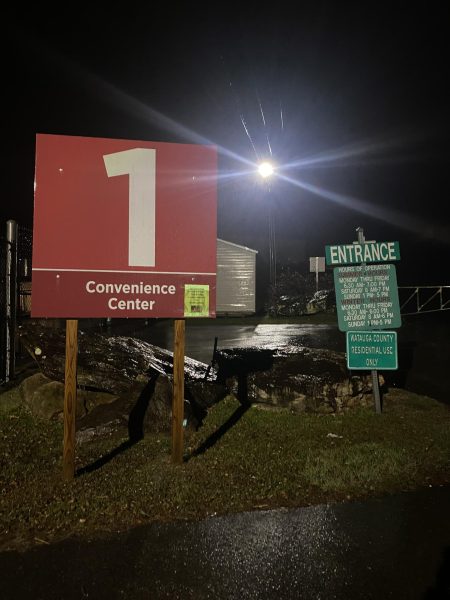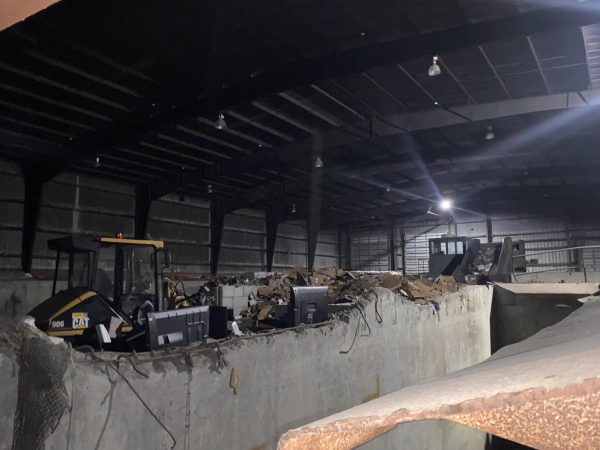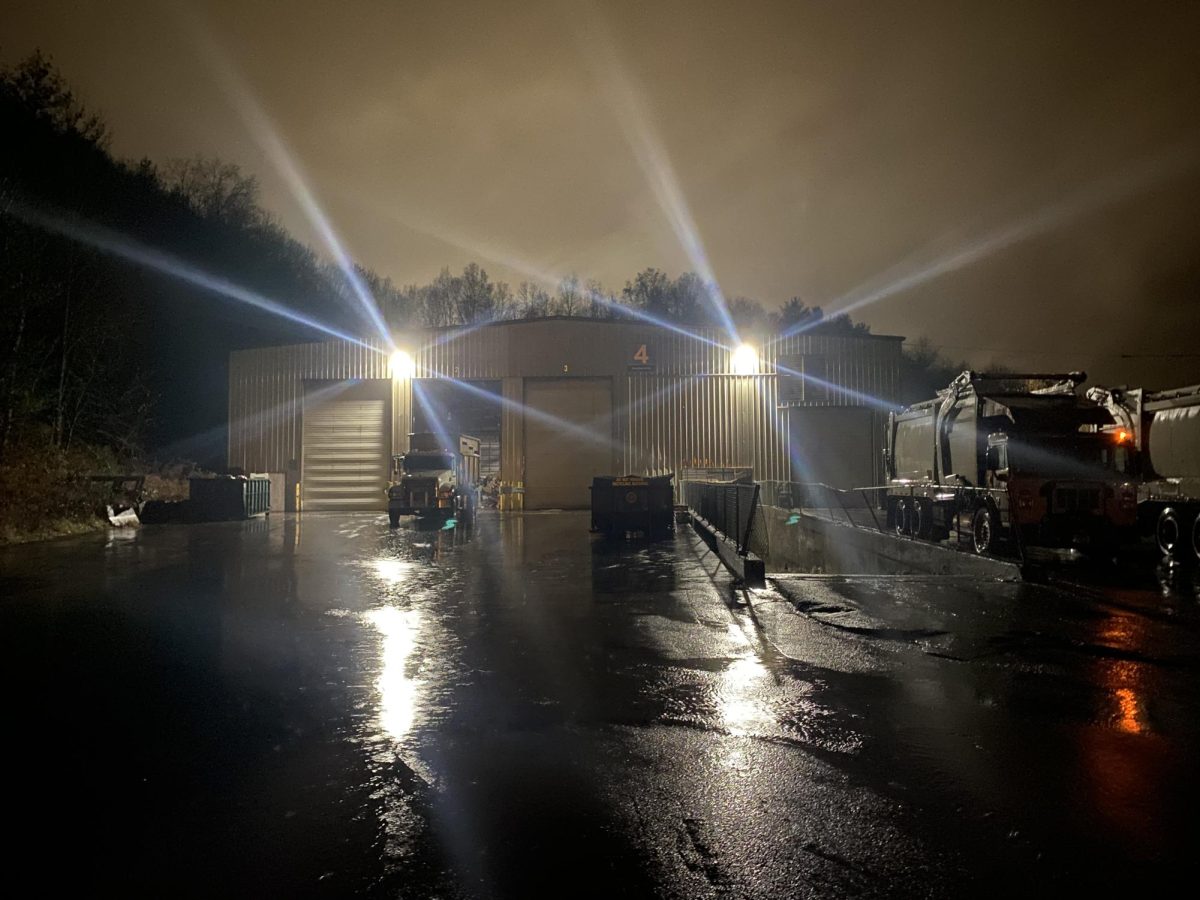For over 150 years, five generations of the Shipley family have raised cattle on the clover-rich, rolling pastures of Vilas, North Carolina.
Their cattle matures without steroids, hormones or feedlots, eating only from the surrounding grassy hills.
“No shortcuts. We keep the cattle on the pasture and let them do the work,” said Gray Shipley, Shipley Farms Partner.
Shipley Farms sold their livestock to other farmers until 2014, when Robert G. Shipley, then 101 years old, embarked the business on a new journey and began selling Shipley-signature finished beef.
“To keep a family farm going, you have to be doing something unique that’s creating more value,” said Gray Shipley, Robert’s grandson.
The farm generates most of its revenue from sales to restaurants across North Carolina, including locations in Boone such as The Cardinal and Coyote Kitchen and Lost Province Brewing Co. Taproom, but also sells meat and merchandise on its website and offers guided tours of the Shipley farmland.
Since the summer of 2020, Shipley Farms has worked with Watauga County in developing the Kill-Chill facility, a USDA-inspected cattle slaughter plant to be located in Boone. The plant will serve 67 meat handlers in a 25–mile radius surrounding the town.
To legally sell beef to stores and restaurants, cattle must be slaughtered and processed in a USDA-inspected facility, with agency inspectors on-site carefully checking the cattle and monitoring procedures.

Once cattle reach a farmer’s desired weight, often ranging from 900-1,300 pounds, farmers drive them to a facility where they are slaughtered, drained of blood and organs and hung in the air to age. The carcass is then processed into cuts requested by the farmer, who returns to the facility to retrieve them.
Shipley Farms transported their cattle to plants across the state, including the two closest USDA-inspected facilities: Mays Meats in Taylorsville and Apple Brandy Prime Cuts in North Wilkesboro, North Carolina, both over 40 miles from the Shipley’s location.
Gray Shipley said the farm typically had their cattle processed within a month of scheduling an appointment at a facility. However, in April 2020, the wait for facilities across North Carolina skyrocketed to 18 months.
“We called to book an appointment the next month, and the response was ‘we’re full, we can’t take you, sorry you’re out of luck,’” Gray Shipley said. “This relationship we had for years just evaporated.”
For meat processing nationwide, local farmers and meat producers such as the Shipleys operate on a different supply chain than major industry corporations, such as Tyson Foods, Smithfield Foods and JBS USA. These corporations, which supply meat found in grocery stores and chain restaurants, operate larger facilities that process thousands of cattle per day.
Smaller independent facilities, like Mays Meats and Apple Brandy Prime Cuts, only process a few thousand cattle per year.
In April 2020, many large beef processing plants were forced to reduce capacity due to COVID-19 outbreaks among employees, with some temporarily shutting down. JBS USA, the nation’s fourth-largest meat processor, which operates a plant in Lenoir, North Carolina, shut down locations in Colorado, Pennsylvania and Wisconsin due to COVID outbreaks. Cargill Meat Solutions, the nation’s largest meat producer, also shut down a plant in Pennsylvania.
“If your capacity goes from 2,000 a day to 500, one day’s production can fill up an independent slaughterhouse,” Gray Shipley said.
The beef processing industry was still recovering from a fire in August 2019 that damaged a Tyson beef processing plant in Kansas, one of the largest in the nation, forcing it to close until January 2020.
According to a document from National Beef Packing Co., the closure of the plant, which occupied 5% of the nation’s processing capacity, caused a national reduction in processing ability while cattle supply remained unchanged.
The pandemic-induced closures perpetuated the supply chain’s fragility exposed by the fire, resulting in a 25% reduction in meat processing by the end of April 2020 compared to pre-pandemic production, according to a study by Purdue University researchers in 2022.
For the first time ever, the amount of cattle available for slaughter exceeded national slaughter capacity.
Farmers whose cattle supplied the retail supply chain with the larger facilities were forced to look elsewhere and began overflowing bookings of the smaller facilities that remained open, causing backlogs for over a year and leaving local farmers scrambling.
“They were holding slots for animals that weren’t born yet,” Gray Shipley said. “Everyone was in a panic; all the farmers in our area were pretty much out of business.”

In Watauga County alone, between 100-150 cattlemen rely on slaughter and processing capacity to feed their families. Over 85% of these farms generate less than $25,000 per year, according to Watauga County Cooperative Extension, a program stemming from the U.S. Department of Agriculture that provides outreach to local farmers on federal, state and county levels.
With no outlet to slaughter and process and their business on the ropes, the Shipleys searched for alternatives.
Just over two miles from Shipley Farms was Cole Meat Processing, a deer processing plant that closed in 2019. Bob Shipley, Gray’s father, met with Kenny Cole, owner of the plant, and discussed the possibility of morphing the facility into a beef processing plant for farmers of the High Country.
Their collaboration resulted in Watauga Butchery, the county’s only USDA-certified meat processing facility. The Butchery, managed by Bob Shipley, opened in July 2020 and has since served over 430 customers across the state. Around 80-85% of their business comes from clients other than Shipley Farms, Gray Shipley said.
“Without the Butchery, there’s a decent chance we wouldn’t have made it,” Gray Shipley said.
While Watauga Butchery provided a lifeline for cattle processing in the region, the facility lacks slaughter capacity, meaning customers still have to send animals to slaughter at plants off the mountain and return the carcasses to the Butchery for processing.
Jim Hamilton, Watauga County cooperative extension director, heard the Shipleys were trying to open a meat processing facility and began writing support letters to allow Watauga Butchery to obtain the necessary infrastructure for USDA certification. Hamilton, a dual NC State University and Watauga County employee, has been the extension director since 2010.
In July 2020 shortly after Shipley Farms signed the lease for Cole Meat Processing, Hamilton spoke with Bob Shipley and Cole in the facility’s parking lot, where he learned Watauga Butchery could not slaughter animals due to lack of infrastructure.
“They have a USDA-inspected plant, but the animals still have to be USDA-killed somewhere,” Hamilton said.
With local cattle farmers still transporting cattle long distances to facilities overflowing with bookings, Hamilton wanted to alleviate the strain by bringing slaughter capacity to Watauga County, and started writing grants for the Kill-Chill facility.
In June 2021, the project received its first grant for $1 million from the Golden LEAF Foundation. The project has since amassed $4.2 million from seven organizations, well beyond the county’s original estimate of around $1.7 million for the facility’s construction.
“I didn’t want to present something to the county that required them to chip in money,” Hamilton said. “Anything they pay for comes out of local taxes and it’s just better to pay for it through different means.”
The Kill-Chill facility will be built on an empty, county-owned two-acre plot of land just north of the county recycling center and on Landfill Road. It will function as a public-private partnership, meaning the county will retain ownership while leasing the facility to a private entity for operation.
Since the summer of 2020, when plans for a Watauga County slaughter facility began to solidify, Hamilton said the county has planned to lease the plant to Watauga Butchery and the Shipley family for operation but will review bids from other organizations wanting consideration. So far, none have expressed interest.
During their Oct. 25 meeting, the Boone Town Council approved water and sewer access for the facility, which Hamilton said was a “major hurdle” for the project’s completion.
“There have been long-standing contentious relationships between the county and the town,” Hamilton said. “But the town council is very open.”
Hamilton said he expects the project is around six months to a year from completion, which may vary depending on the availability of construction materials.
While wait times for North Carolina slaughter facilities have decreased since the exponential rise in April 2020, farmers still need to book cattle three to six months in advance, Gray Shipley said.
A Boone slaughter plant would also reduce fuel and labor costs for farmers currently transporting animals long distances to the closest available slaughter plants. Shipley Farms currently sends some of their cattle to slaughter to a plant in Siler City, North Carolina, about a six-hour round trip.
“You may be making $500 raising a beef and processing it and a couple hundred bucks comes out of your profit when you make that trip,” Gray Shipley said. “Building a slaughter plant here is going to make that disappear.”
Hamilton said farmland preservation is the overarching goal of the Kill-Chill facility. According to the American Farmland Trust, Watauga County has the 39th highest risk for agricultural land loss by 2040 in the nation.
“That’s the bigger picture goal because it’s become so expensive to farm here,” Hamilton said. “It’s a true need.”
Correction: A previous caption in this article said the Kill-Chill facility would replace the Watauga County Recycling Center. This has been corrected in the article.




Harold Campbell • Jan 19, 2024 at 5:09 pm
In 1972 there was a small meat processing facility about three blocks from campus…. Many students were unaware that it was there. So this really isn’t a new concept. Probably farther from campus than the previous facility…
Lynn Gibbard • Jan 18, 2024 at 12:13 pm
Thank you for sharing this story! The tradition of cattle farming in the Appalachian mountains and our community demonstrates the resilience of our farmers in the face of so many obstacles. These farms provide outlets to local foods cutting down on the environmental impact of transport, supporting food access and equity on a local level, and providing those willing to do the work with a living.
One thing that is often overlooked when people are talking about the impact of farms on our mountain community is the open spaces that they maintain and that we enjoy. As the article notes, the bucolic landscape of mountainsides and mountain meadows that define our region are at risk of development. If that happens, we’ll be looking at row upon row of apartments, condos, hotels, and homes. The funny thing about this kind of development is that, while it can support tourism, it also destroys what the tourists come to see and to experience.
One other point I’ll make is that having a local facility doesn’t just increase the profits for those local farmers, the majority of whom are making less than $25,000 a year as noted in the article. It also decreases instances of stress and injury to the animals. Farming, processing, and selling locally is better for people. It’s better for the animals and crops. It’s better for the environment.
Nick DelPaoli • Jan 19, 2024 at 5:55 am
No tourist comes to Boone to smell cow poop and see cows suffering in mud holes because all of our high elevation wetlands were turned into cattle farms
Tourists come to hike and see forests and wildlife!!!! You are grossly mistaken, these farms actually make the “farmers” millions in the form of unpaid taxes. Every single year the community suffers for a few pounds of luxury beef that NO ONE who is actually struggling in the community ever gets to eat
Christie Rhoad • Jan 18, 2024 at 9:15 am
This is a very well written article. I am impressed with the journalism!
Nick DelPaoli • Jan 20, 2024 at 10:56 pm
DIDNT MENTION A THING ABOUT ENVIRONMENTAL CONCERNS OR TAX EVASION… Millionaires use cattle as a way to avoid paying taxes to county govt, directly taking that money from the local community. The farms pollute our supposedly pristine mountain streams and clean air. All for a few pounds of luxury beef that NO one struggling in this community will enjoy… Not to mention the teenage boy who died on a cattle farm last year when a tractor rolled down the steep slope on top of him, crushed him to death in the name of tax breaks for millionaire land owners… Is it really worth raising cattle in Appalachia?
Heather Williams • Jan 17, 2024 at 9:49 pm
Great story! We need to support local farms and this is one way to help the farmers supply the local market.
Nick DelPaoli • Jan 18, 2024 at 5:21 am
The Shipley family are millionaires who skip out on taxes claiming to be “farmers” as do all cattle farmers in Watauga. Cattle farming steep slopes in dangerous, a teenage boy died last year. Who will work the slaughterhouse – illegal immigrants of course. Cattle contribute to air and water pollution – THE TWO THINGS GOD GAVE US MOUNTAIN FOLK, AND THE MILLIONAIRES ARE TRYING TO TAKE IT AWAY FOR COW TAX BREAKS
Nick DelPaoli • Jan 16, 2024 at 3:53 pm
Cattle should not be in Appalachia
A teenage boy was killed working a cattle farm last year
Steep slopes should not be farmed, there should be forest
Shipley Farm as well as all other cattle farms in Watauga tak film advantage of the NC Agricultural Tax Cuts – amounting to $200,000,000 state wide annually!
While the rest of the county remains impoverished, these oldoney millionaires get away with paying ZERO taxes.
Cattle farming cause degredation of the natural environment, they crush plants and animals, they erode stream banks and contribute to water and air pollution. Every cattle farm is a scar on our environment and a stain on our community.
Zeke Putnam • Jan 16, 2024 at 12:29 pm
The Shipley family is incredibly nice and they have a beautiful farm. I hope they can survive and thrive into the future, they have very good quality steaks that my family has loved to eat for years.
Nick DelPaoli • Jan 18, 2024 at 5:20 am
The Shipley family are millionaires who skip out on taxes claiming to be “farmers” as do all cattle farmers in Watauga. Cattle farming steep slopes in dangerous, a teenage boy died last year. Who will work the slaughterhouse – illegal immigrants of course. Cattle contribute to air and water pollution – THE TWO THINGS GOD GAVE US MOUNTAIN FOLK, AND THE MILLIONAIRES ARE TRYING TO TAKE IT AWAY FOR COW TAX BREAKS
“beautiful farm”. I guess you’ve never lived next to one and smelled cow poop all day. I guess you’ve never had cattle trample your crops. I guess you’ve never seen the forests that are supposed to be here. God didn’t put cattle farms on this land, God put 100ft tall trees, salamander and snakes, mushrooms, etc.